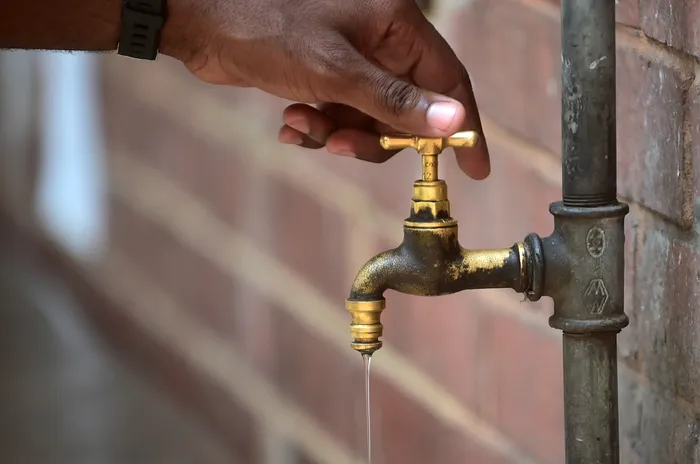
This comes as the bulk water provider sets to rollout more than R40 billion toward ageing infrastructure refurbishment over the next five years.
Image: Supplied
Banele Ginidza
Rand Water is anticipating a change in legislation that could enable it to override poor municipal management of water and sanitation budgets, the provision of water services, and facilitate a choice of supplier for consumers while also ringfencing water and sanitation payments.
This comes as the bulk water provider is set to rollout more than R40 billion upgrading the bulk water infrastructure and upgrading waste-water treatment works in municipalities over the next five years.
Speaking at the latest PSG Think Big Series webinar on Tuesday, Rand Water CEO, Sipho Mosia, said this initiative was a direct response to the escalating challenges faced in municipal water management.
Mosia said the entity was confident of the immediate future with reviews in legislation that would enable it to play a more proactive role in water distribution.
"The prognosis looks good in terms of our ability to get more water into the system. This time last year we added about 150 million litres of water into the system. And we are going to be adding an additional 450 million of water into the system, which will in a period of about two years add 600 million litres. So the prognosis looks good, at least at the bulk level," Mosia said.
"Already in 2025/2026, we are talking meeting the demands of 2031 in terms of the bulk water provision into the system. For those that invest in Rand Water, we are still maintaining the gross profit margins that I cannot disclose numbers now but its looking good. All we need to do as country is focus on distribution and the future looks rosy."
Mosia said the upgrades will be funded by the Department of Water and Sanitation, with the first rollout at the Emfuleni Municipality where 5 mega litres a day water treatment works is being built.
He said the reviewing of some key pieces of legislation would ensure that water services and water authority functions would be mandated separately.
One of Operation Vulindlela's objectives is to strengthen water resource management through reforms aimed at enhancing the overall management of water resources, improving water service delivery by local municipalities, and establishing or appointing ringfenced, professionally managed, and independently licensed utilities for water and sanitation services.
"What the government is saying is that if you are a municipality and you are struggling with water services provision, it is not going to be given that you are going to be a water services provider. That is going to be taken away and given to a different entity that can be another municipality," he said.
"That can be a district municipality or a local municipality that is capable. It can be given to a water board, to a private service institution. That is part of the reform that we are putting in place. We have already started at the Emfuleni Municipality where we are coming in as a service provider. The municipality is the authority and that will change."
Mosia said the debt owed by municipalities to Rand Water has surged from R1.5bn in 2015 to more than R8bn by the third quarter of the 2024/25 period, putting a serious drain on the entity's ability to function.
"We are still fine for now. We are able to raise capital in the market place but in the long term it's a matter of serious concern for us. And part of why we welcome the reforms is because they are getting towards ringfencing all the funds related to water and sanitation," Mosia said.
"We have seen the water entity within the municipality is highly profitable. They generate enough revenue. They can be able to pay the bulk water to Rand Water. But because money has no colour in the municipality, the revenue is used for other services and therefore the municipalities do not pay for bulk water.
"With these changes, particularly what we are implementing as a new model, the money that comes for water and sanitation will be ringfenced. What will then turn the situation around is that the money the municipality collects for consumers and water and sanitation will then go to bulk water provision and services that are related to that, including the upgrade and refurbishment of aging infrastructure in the value chain."
BUSINESS REPORT